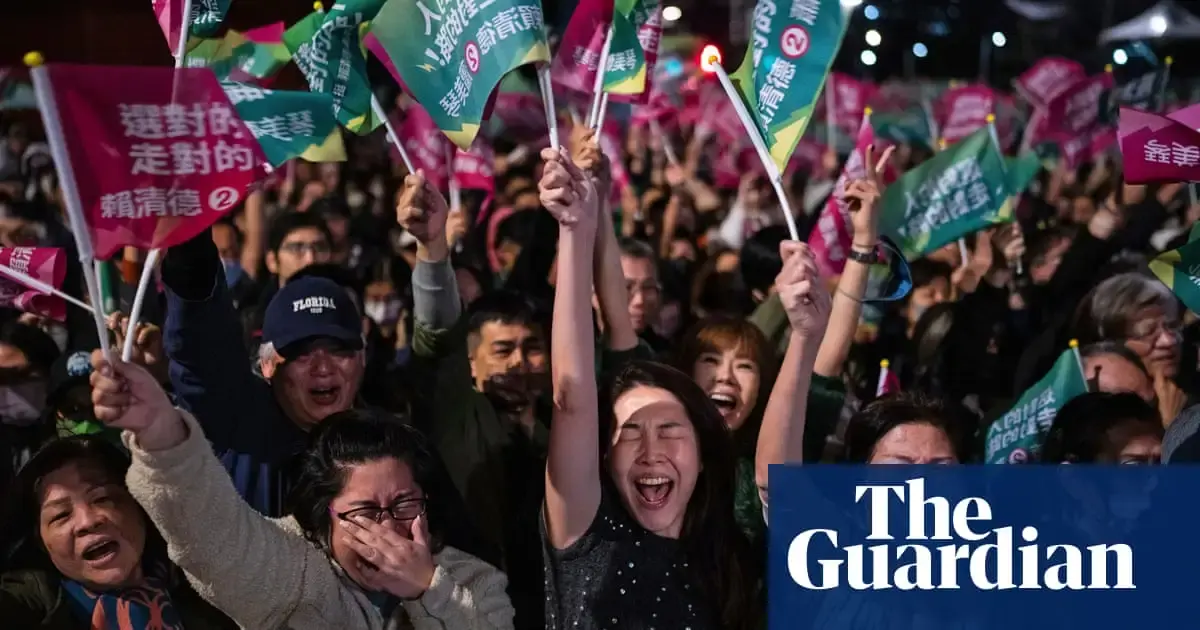- cross-posted to:
- world@lemmy.world
- taiwan@lemmy.world
- china
- cross-posted to:
- world@lemmy.world
- taiwan@lemmy.world
- china
Cross-posted from: https://beehaw.org/post/11038232
Lai Ching-te won an unprecedented third term in power for the pro-sovereignty Democratic Progressive party (DPP) in Saturday’s election, with more than 40% of the vote. Lai is taking over from the DPP’s Tsai Ing-wen, who has been president since 2016, promising to continue her foreign policy efforts in resisting China’s plans to annex Taiwan.
“We’re not. We’re congratulating Taiwan”
🤖 I’m a bot that provides automatic summaries for articles:
Click here to see the summary
Speaking to reporters shortly after the result, US president Joe Biden, who plans to send an unofficial delegation to Taiwan next week, reiterated that the US does not support Taiwanese independence.
A congratulatory statement by Japan’s foreign minister, Yoko Kamikawa, describing Taiwan as “an extremely crucial partner and an important friend,” was also blasted by Beijing’s embassy in Tokyo as “a serious interference in China’s internal affairs”.
Dali Yang, a professor of political science at the University of Chicago, said the TAO also faced criticism from nationalists in China who felt that efforts to influence public sentiment in Taiwan to become more pro-China had failed.
The CCP’s People’s Liberation Army (PLA) said on Friday it was on “high alert” and ready to “smash” plots of Taiwanese independence, but its activity was quiet on the actual election day.
Amanda Hsiao, a Taipei-based senior China analyst with the International Crisis Group, said Beijing was likely to react to Lai’s victory with increased pressure, particularly in the lead-up to his inauguration in May.
“Taiwan has finally officially entered into a three-party system, which further complicates consensus-building especially for major legislations,” said Wen-Ti Sung, a China expert at the Australian National University.
Saved 79% of original text.


